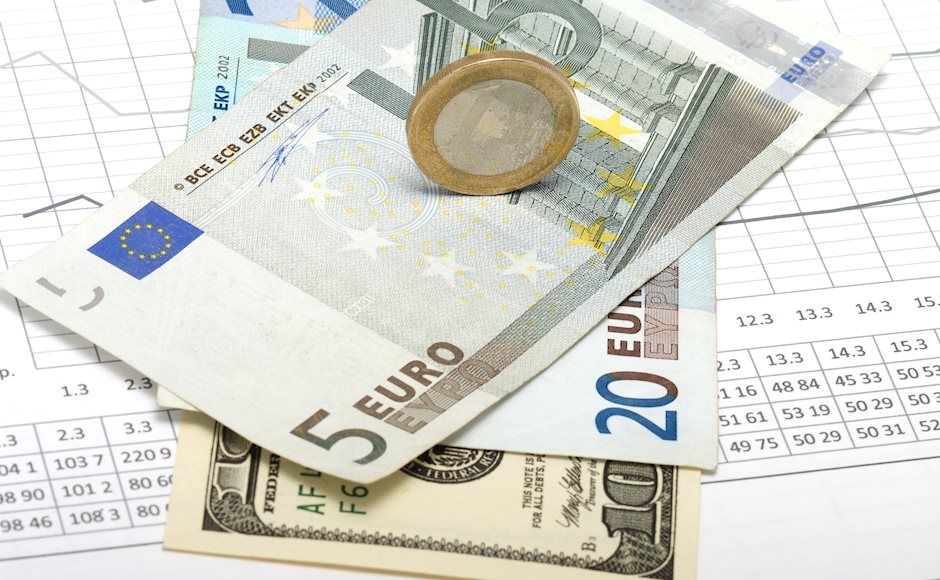EUR/USD hovers near 1.0850, downside seems possible due to shift in policies outlook
- EUR/USD may face challenges due to market perception changes regarding central banks’ policy outlooks.
- The US Dollar gained ground due to the fading likelihood of an aggressive rate cut by the Fed in November.
- The ECB may accelerate its pace of policy easing to bolster growth in the Eurozone.

EUR/USD remains steady after gains in the previous session, hovering around 1.0860 during Monday's Asian trading hours. A potential downside looms as speculation about a 50-basis-point rate cut by the Federal Reserve (Fed) in November has been dispelled by recent data showing the US economy's resilience.
According to the CME FedWatch Tool, the probability of a 25-basis-point rate cut in November has risen to 99.3%, up from 89.5% a week earlier. US Retail Sales rose by 0.4% month-over-month in September, surpassing the 0.1% gain recorded in August and market expectations of a 0.3% increase. Additionally, US Initial Jobless Claims fell by 19,000 during the week ending October 11, the largest decline in three months. The total number of claims dropped to 241,000, significantly below the anticipated 260,000.
Rabobank's research suggests that the market is interpreting recent comments from European Central Bank (ECB) officials as an indication that they are increasingly comfortable with the Eurozone's inflation outlook. As a result, the ECB seems to be shifting its focus toward supporting regional growth. This has fueled speculation about a possible faster pace of ECB easing, including the potential for a larger 50-basis-point interest rate cut. Such a move could weigh on the Euro and exert downward pressure on the EUR/USD pair.
The Euro faced downward pressure following the European Central Bank's (ECB) decision to cut its interest rates by 25 basis points last week. The move is in response to a significant drop in inflation, which had surged to a high of 10.6% in October 2022 but has since fallen to 1.7% in September, now below the ECB's 2% target.
Euro FAQs
The Euro is the currency for the 19 European Union countries that belong to the Eurozone. It is the second most heavily traded currency in the world behind the US Dollar. In 2022, it accounted for 31% of all foreign exchange transactions, with an average daily turnover of over $2.2 trillion a day. EUR/USD is the most heavily traded currency pair in the world, accounting for an estimated 30% off all transactions, followed by EUR/JPY (4%), EUR/GBP (3%) and EUR/AUD (2%).
The European Central Bank (ECB) in Frankfurt, Germany, is the reserve bank for the Eurozone. The ECB sets interest rates and manages monetary policy. The ECB’s primary mandate is to maintain price stability, which means either controlling inflation or stimulating growth. Its primary tool is the raising or lowering of interest rates. Relatively high interest rates – or the expectation of higher rates – will usually benefit the Euro and vice versa. The ECB Governing Council makes monetary policy decisions at meetings held eight times a year. Decisions are made by heads of the Eurozone national banks and six permanent members, including the President of the ECB, Christine Lagarde.
Eurozone inflation data, measured by the Harmonized Index of Consumer Prices (HICP), is an important econometric for the Euro. If inflation rises more than expected, especially if above the ECB’s 2% target, it obliges the ECB to raise interest rates to bring it back under control. Relatively high interest rates compared to its counterparts will usually benefit the Euro, as it makes the region more attractive as a place for global investors to park their money.
Data releases gauge the health of the economy and can impact on the Euro. Indicators such as GDP, Manufacturing and Services PMIs, employment, and consumer sentiment surveys can all influence the direction of the single currency. A strong economy is good for the Euro. Not only does it attract more foreign investment but it may encourage the ECB to put up interest rates, which will directly strengthen the Euro. Otherwise, if economic data is weak, the Euro is likely to fall. Economic data for the four largest economies in the euro area (Germany, France, Italy and Spain) are especially significant, as they account for 75% of the Eurozone’s economy.
Another significant data release for the Euro is the Trade Balance. This indicator measures the difference between what a country earns from its exports and what it spends on imports over a given period. If a country produces highly sought after exports then its currency will gain in value purely from the extra demand created from foreign buyers seeking to purchase these goods. Therefore, a positive net Trade Balance strengthens a currency and vice versa for a negative balance.
Author

Akhtar Faruqui
FXStreet
Akhtar Faruqui is a Forex Analyst based in New Delhi, India. With a keen eye for market trends and a passion for dissecting complex financial dynamics, he is dedicated to delivering accurate and insightful Forex news and analysis.

















